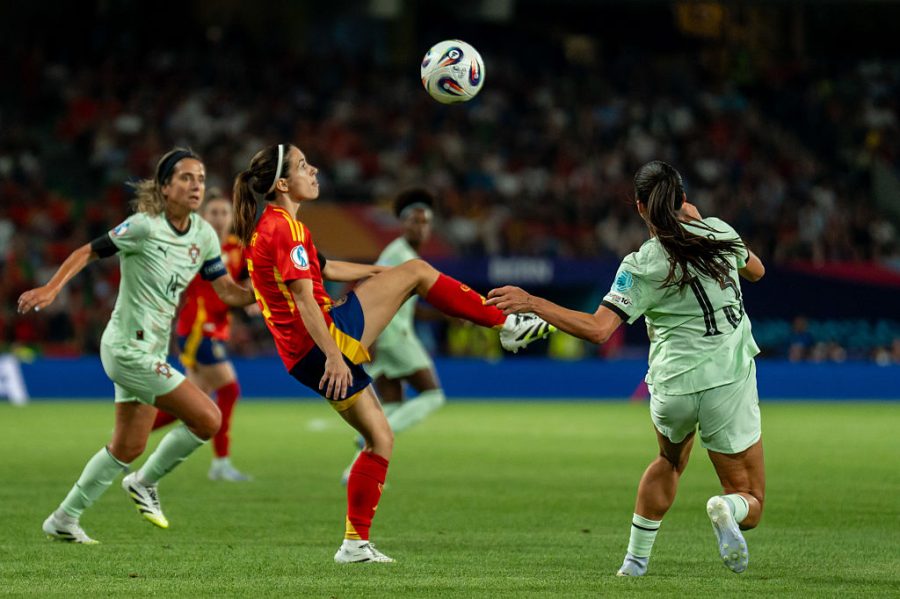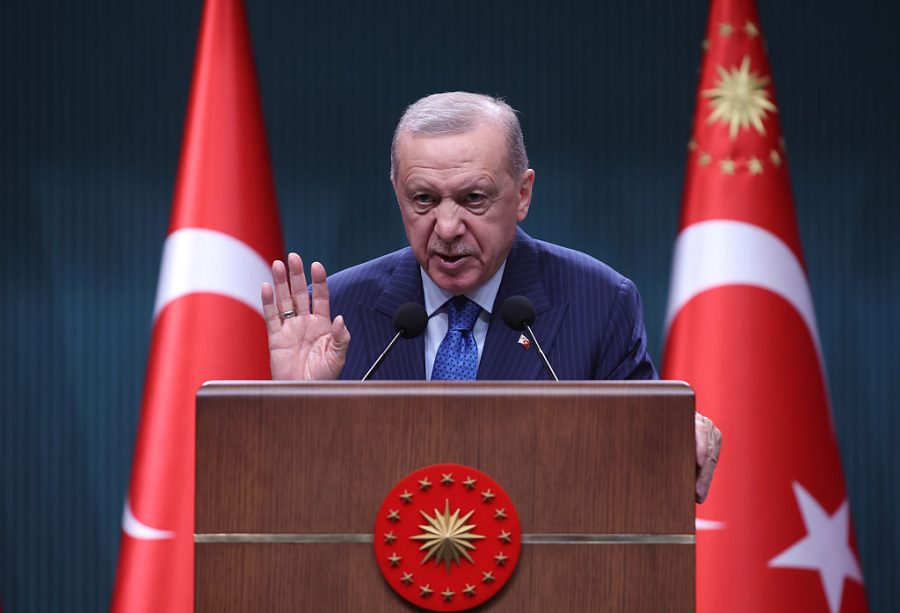On 1 August 2022, bleary-eyed England women football players danced around central London with the word ‘Home’ emblazoned across their t-shirts. They were celebrating being crowned European champions, becoming the first senior English team to win a major tournament since 1966. They had brought football home. Now the game is back: on Wednesday, Euro 2025 kicked off in Switzerland.
The tournament comes at a pivotal moment. Both in-person and TV viewership of women’s domestic football dropped in the UK last season. A recent report from the Women’s Sports Trust found that in-person Women’s Super League (WSL) match attendances were down 10 per cent season-on-season, with average TV viewership down 35 per cent. Data presented by Deloitte showed that major clubs such as Manchester United, Manchester City, Aston Villa and even Arsenal, so long a pioneering women’s football team, saw average attendances drop in the 2024/25 season.
TikTok views can’t replace people actually going through the turnstiles
The report hinted at where things were going, noting a spike in interest on social media platforms, namely YouTube, where a number of WSL games are broadcast live, and TikTok.
‘The growing digital interest shows there’s strong casual fandom; the opportunity now is to translate that into regular, domestic viewing habits, especially off the back of the interest that this summer’s major events will generate,’ said Tammy Parlour, CEO of the Women’s Sport Trust, upon releasing the organisation’s research.
But TikTok views can’t replace people actually going through the turnstiles. For women’s football to grow further, it needs to stop being a social media trend and instead be valued as an elite-level sport.
That’s why a tournament like Euro 2025 is so important. Thankfully, it is all being broadcast on the BBC and ITV in the UK, meaning millions can easily watch the best players in the world, possibly for the first time.
Women’s football has a different vibe to the men’s game, for both good and bad. It boasts a more family-friendly atmosphere in the stadium, in no small part down to the considerably cheaper tickets. It is also somewhat more politicised, with knee-taking and rainbow armbands a regular occurrence. Anti-racism and anti-LGBT discrimination are important, worthwhile causes. However, when it comes to crunch time, when you’re at a major tournament trying to bring your country glory, it’s only the sport that matters. And it’s ultimately the sport that has to draw fans in.
Things do not always develop in a straight line. A dip from one season to another doesn’t mean the WSL, or women’s football in general, is in terminal decline. However, if audiences do not rise again at the start of next season, there is surely a risk that investors, sponsors and even the clubs themselves will choose to put their money elsewhere.
But there’s no need to be overly negative. Women’s sport around the globe is generally enjoying long-awaited, long-deserved growth and there are plenty of good news stories in women’s football here in the UK. Champions League winners Arsenal are going to play all their matches at the club’s main home, the Emirates Stadium, next season. Richard Garlick, Arsenal Managing Director, described the move as ‘another bold step forward’.
Over in South London, London City Lionesses, who are not affiliated with any men’s side, have made it to the top tier for the very first time. This breakthrough is largely thanks to investment from owner Michelle Kang, a businesswoman who has put her money into a variety of teams.
We know there is great potential to attract crowds, both in England and elsewhere. North London derbies between Tottenham and Arsenal have consistently broken attendance records, including getting over 60,000 fans into the Emirates in March 2024.
In Europe, the Frauen Bundesliga in Germany is showing meaningful growth in attendances, albeit from a low base. Spain’s Liga F has been broadcast in the UK via DAZN and TNT sports. Furthermore, the women’s Clasico between Real Madrid and Barcelona has brought in a staggering 91,000 fans. But that was back in the Champions League in March 2022, ahead of the Euros, when hype was in full flow.
In sport, momentum matters, both on the pitch and off it. Euro 2025 needs to provide some to keep up the progress we’ve seen in women’s football in recent years.







Comments